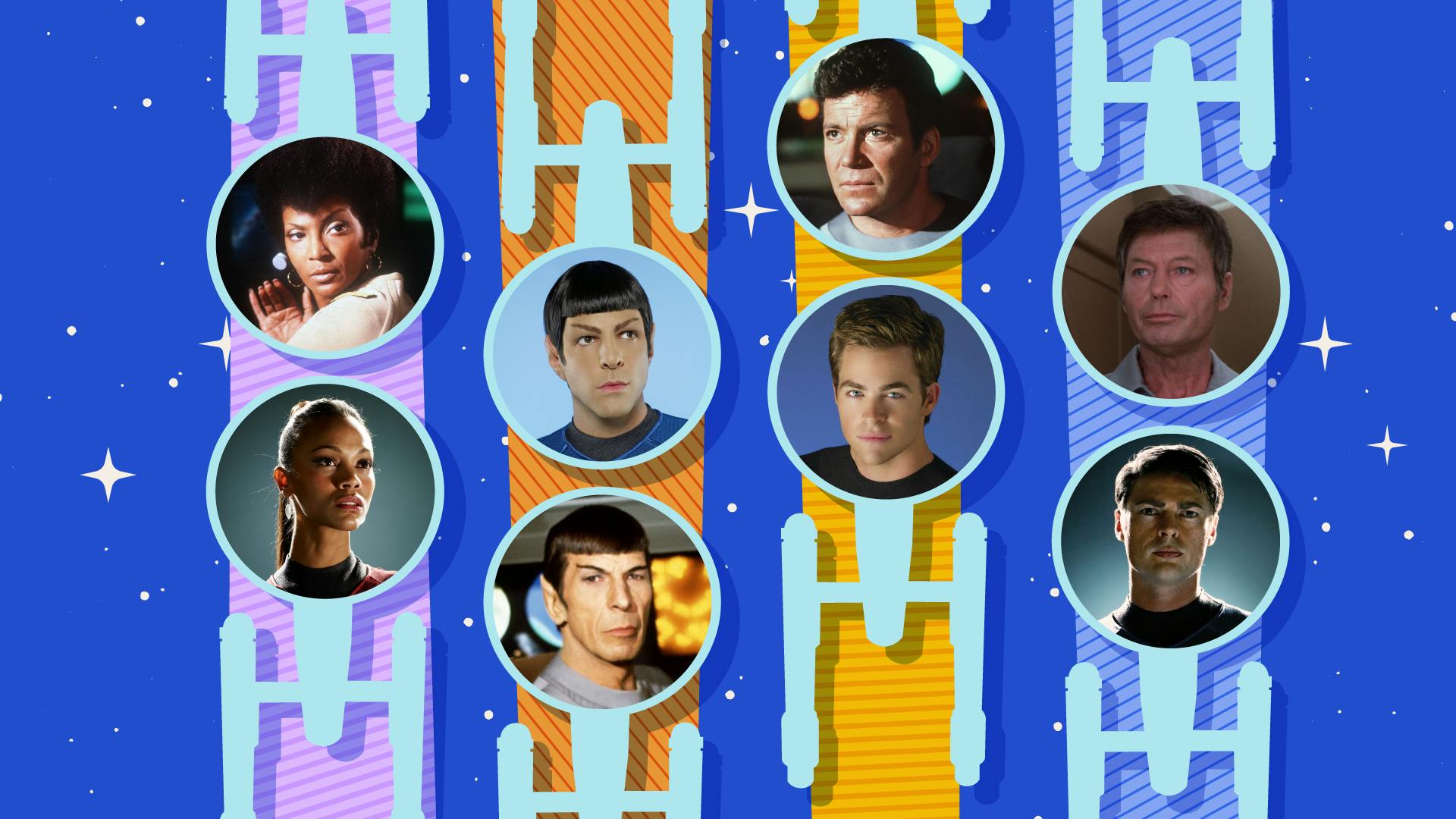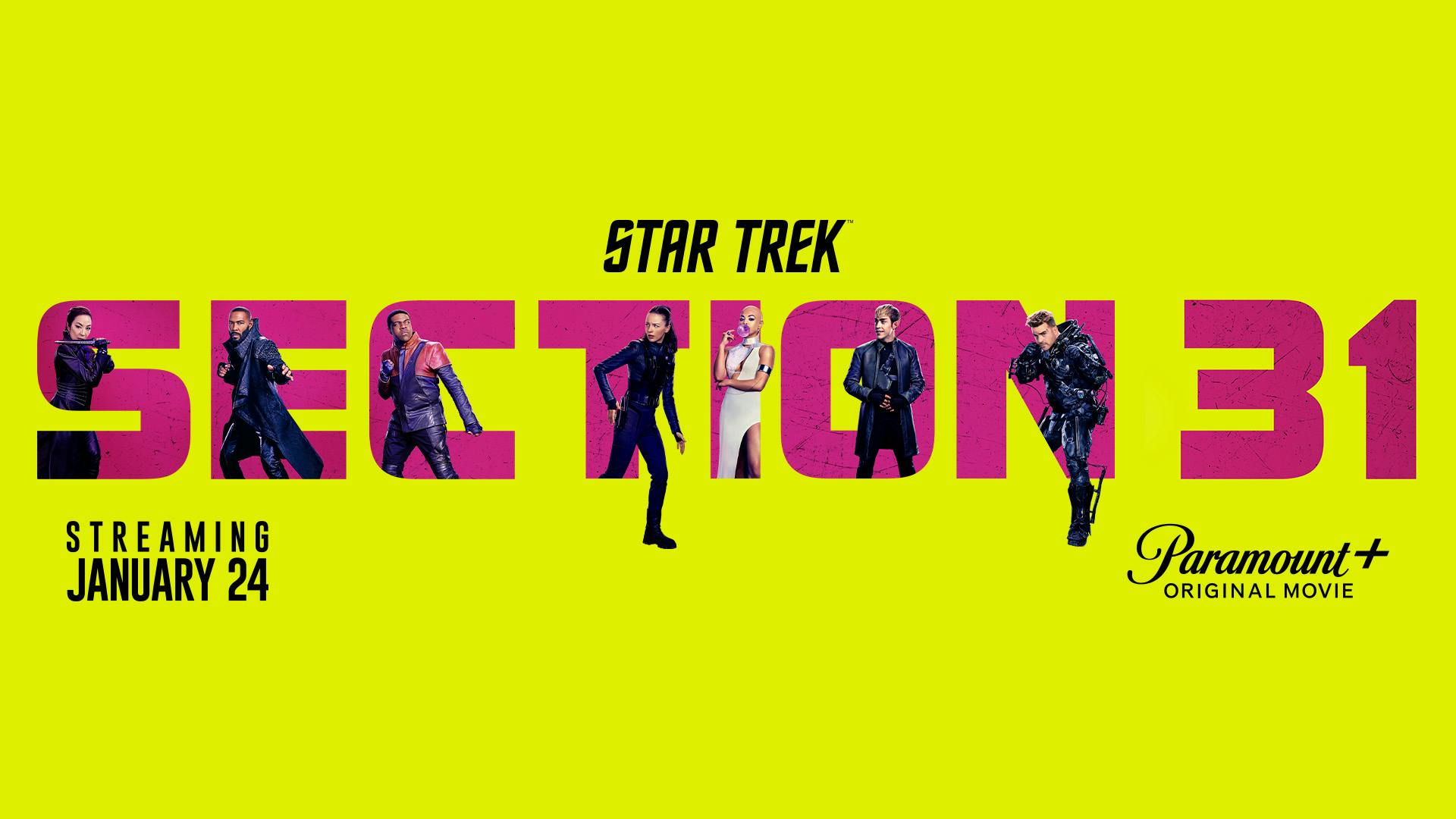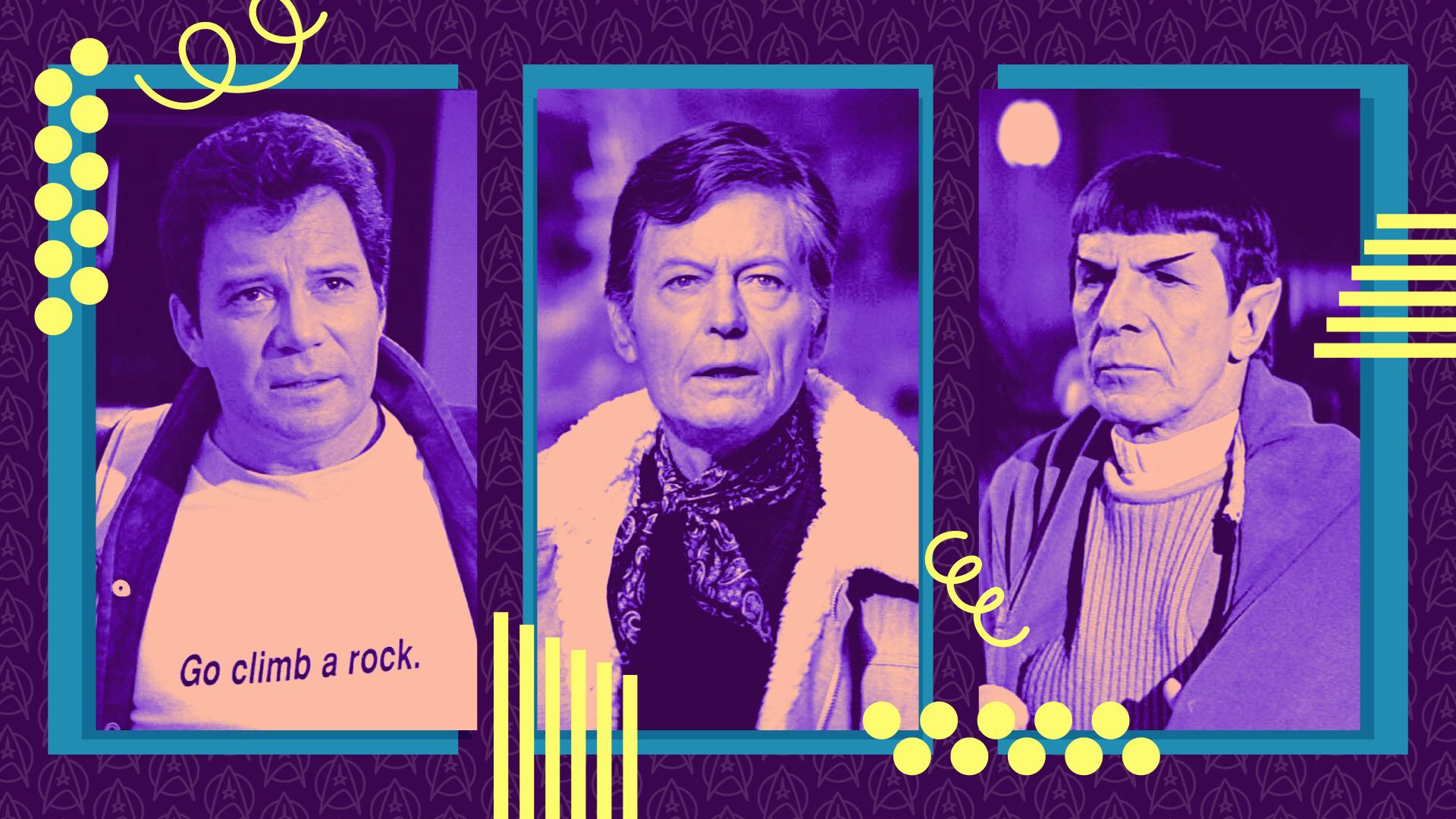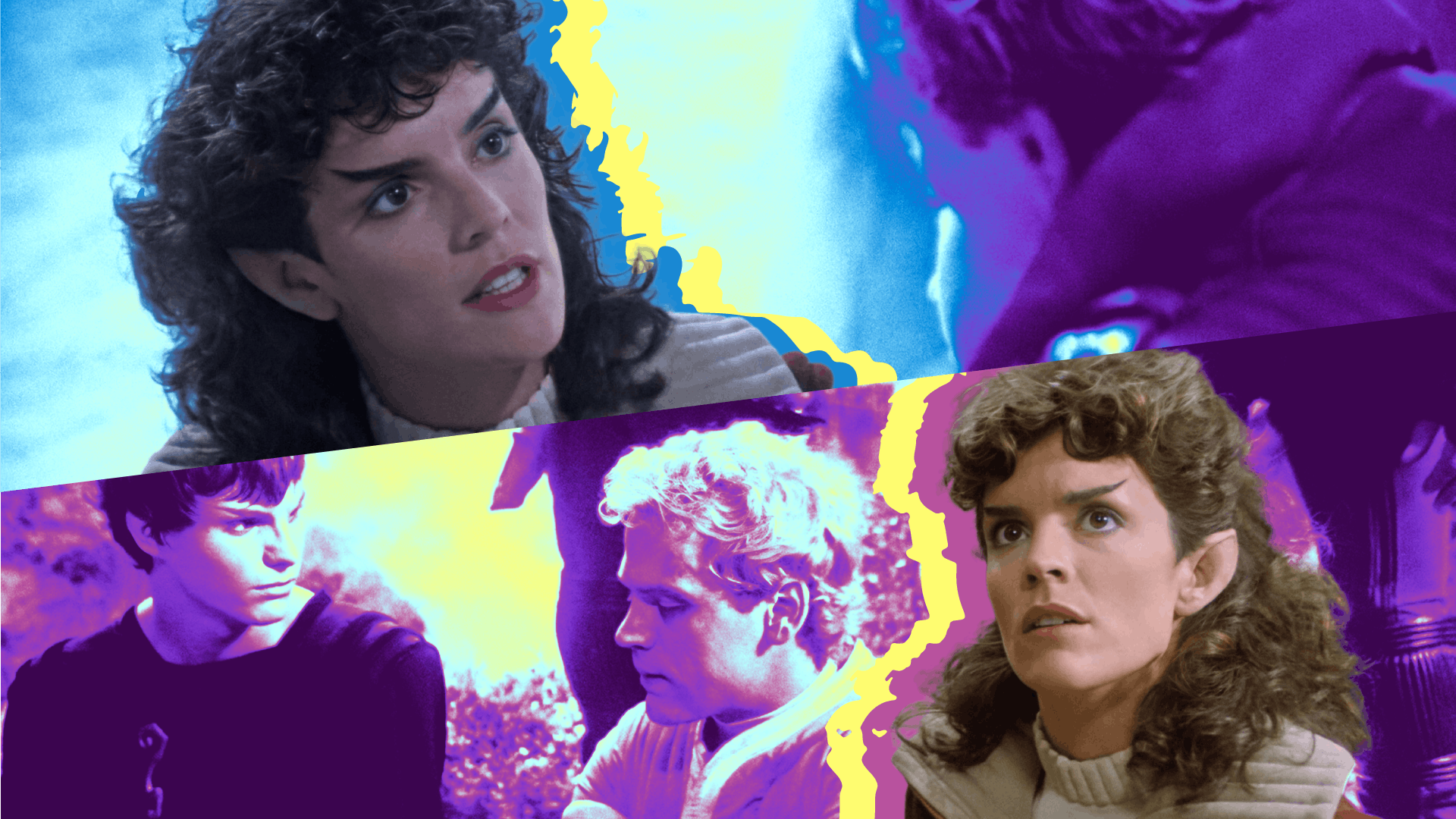Published Dec 6, 2023
My Undiscovered Country
Like the crew of the Enterprise, I’ve had to confront my unconscious biases and systemic racism.
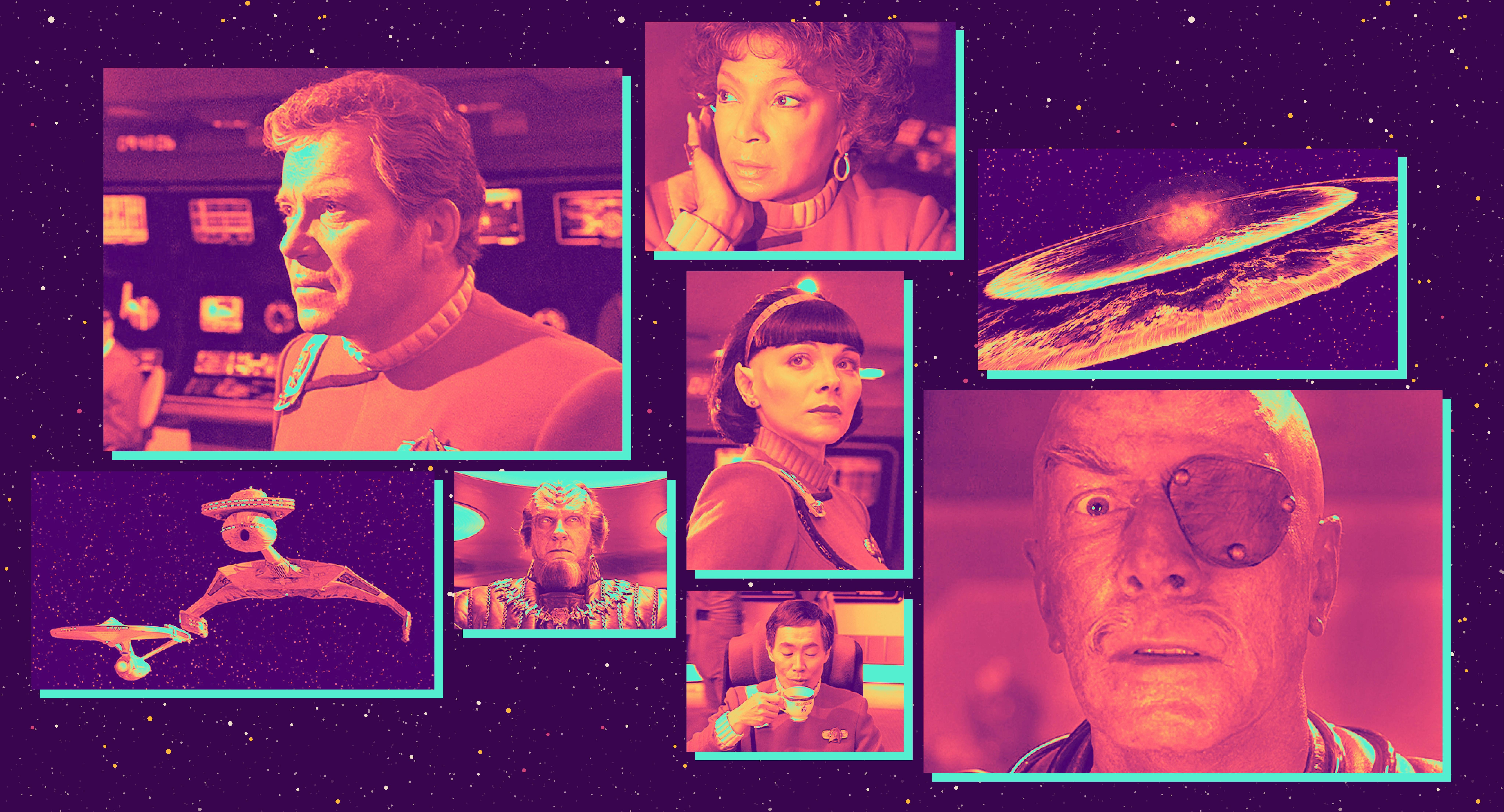
StarTrek.com
On December 6, 1991, 12-year-old me settled into my local movie theater, dressed in full uniform, to see the local premiere of .
I loved the movie as the grand space adventure it was. In it, I also saw the symbolism of the end of the Cold War. I’d long known that in , the Klingon Empire represented the Soviet Union, and The Undiscovered Country’s storytelling about the fall of Soviet Russia was obvious in that regard. Two-and-a-half weeks later, I was 900 miles away in Calgary, Alberta, Canada celebrating Christmas with my mom’s family. My maternal grandparents were the children of Russian immigrants, who’d escaped the Czars and sought a better life in the Americas. Over their lifetimes, my grandparents had watched with horror the rise of communism in their ancestral motherland.
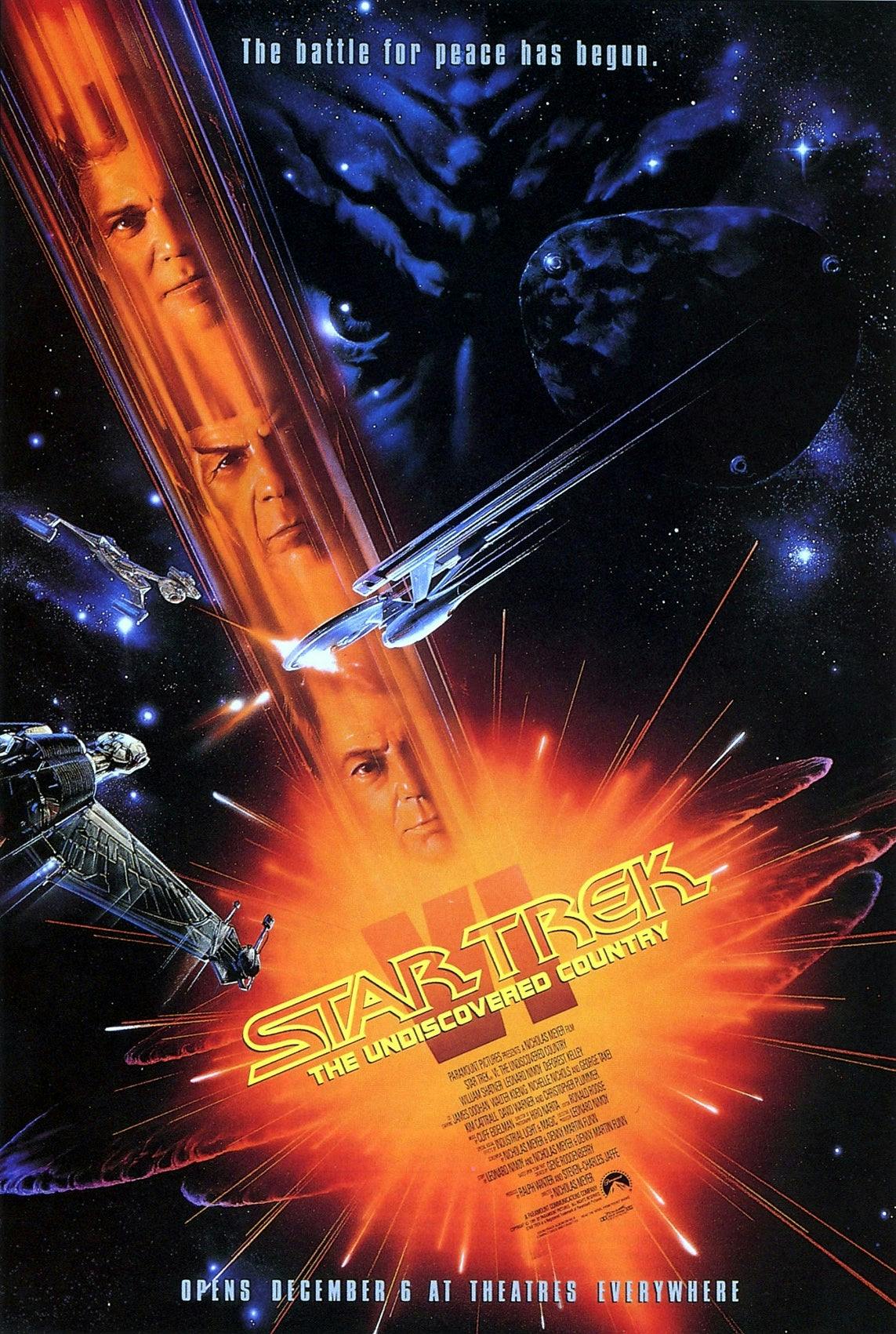
Star Trek VI: The Undiscovered Country
StarTrek.com
I will never forget my family gathering around the TV that Christmas Day, watching Gorbachev resign, signaling the symbolic end of the Soviet Union and the Cold War. My grandparents were very emotional, and I reflected on how prescient Star Trek VI had become in only a matter of days.
Now, nearly 30 years later, I have come to realize, in a very surprising and different way, that the final adventure of Captain Kirk and crew had become much more prescient for me personally. Watching the movie in 2020, I no longer focus on the Cold War, but on the Enterprise crew’s prejudice, indeed the systemic racism that permeated the 23rd-Century galaxy. It is remarkable to watch Kirk and the others wrestle with their racism.
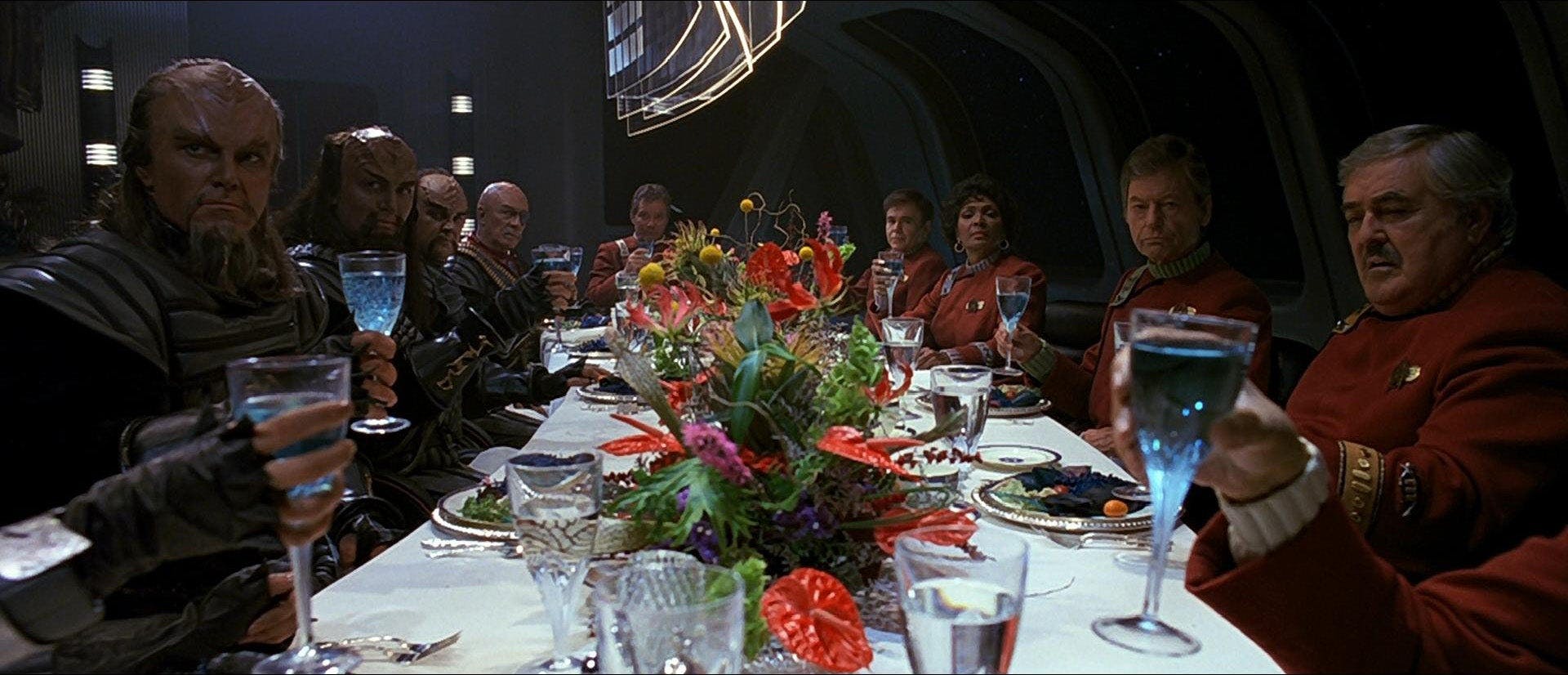
Star Trek VI: The Undiscovered Country
StarTrek.com
In the film, Klingon Chancellor Gorkon makes a toast, referring to “The Undiscovered Country” as “the future.” In the context of the movie, that is apt. But, for me in 2020, I believe my personal “Undiscovered Country” is recognizing systemic racism and overcoming my personal unconscious racism.
Of course, Star Trek has always confronted racism both overtly and allegorically. As far back as the first season of episode of TOS, “,” Kirk warns Lt. Styles there’s no place for his bigotry on the bridge of the Enterprise. “,” “,” “,” and countless other episodes and movies across the franchise tackle this topic in profound ways. Star Trek VI is one.
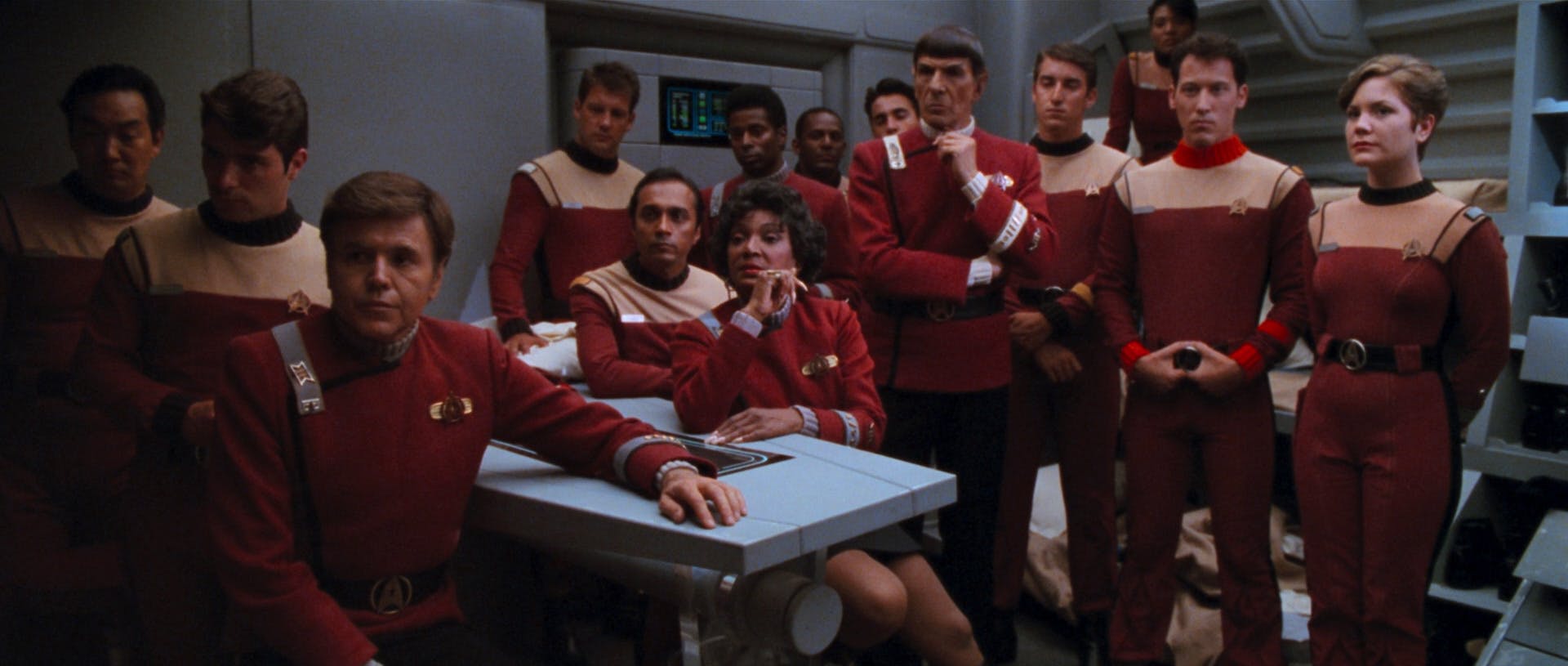
Star Trek VI: The Undiscovered Country
StarTrek.com
Like Captain Kirk in those classic episodes, I’d grown up despising racism, self-assuredly believing I was not racist. I remember being taught from a very young age, and believing, that all people are equal. As an adult, I have opposed discrimination, supported , and tried to teach my children to treat others equally. Yet, the events of recent months have awakened in me an awareness of other forms of racism within myself and society.
It is perhaps helpful here to separate the ideas of individual racism/prejudice and institutionalized/systemic racism. The American Psychological Association defines them thusly:
Individual racism is a personal belief in the superiority of one’s race over another. It is linked to racial prejudice and discriminatory behaviors, which can be an expression of implicit and explicit bias.
Institutionalized racism is a system of assigning value and allocating opportunity based on skin color. It unfairly privileges some individuals and groups over others and influences social institutions in our legal, educational, and governmental systems. It is reflected in disparities in, but not limited to, wealth, income, justice, employment, housing, medicine, education, and voting. It can be expressed implicitly or explicitly and occurs when a certain group is targeted and discriminated against based on race.
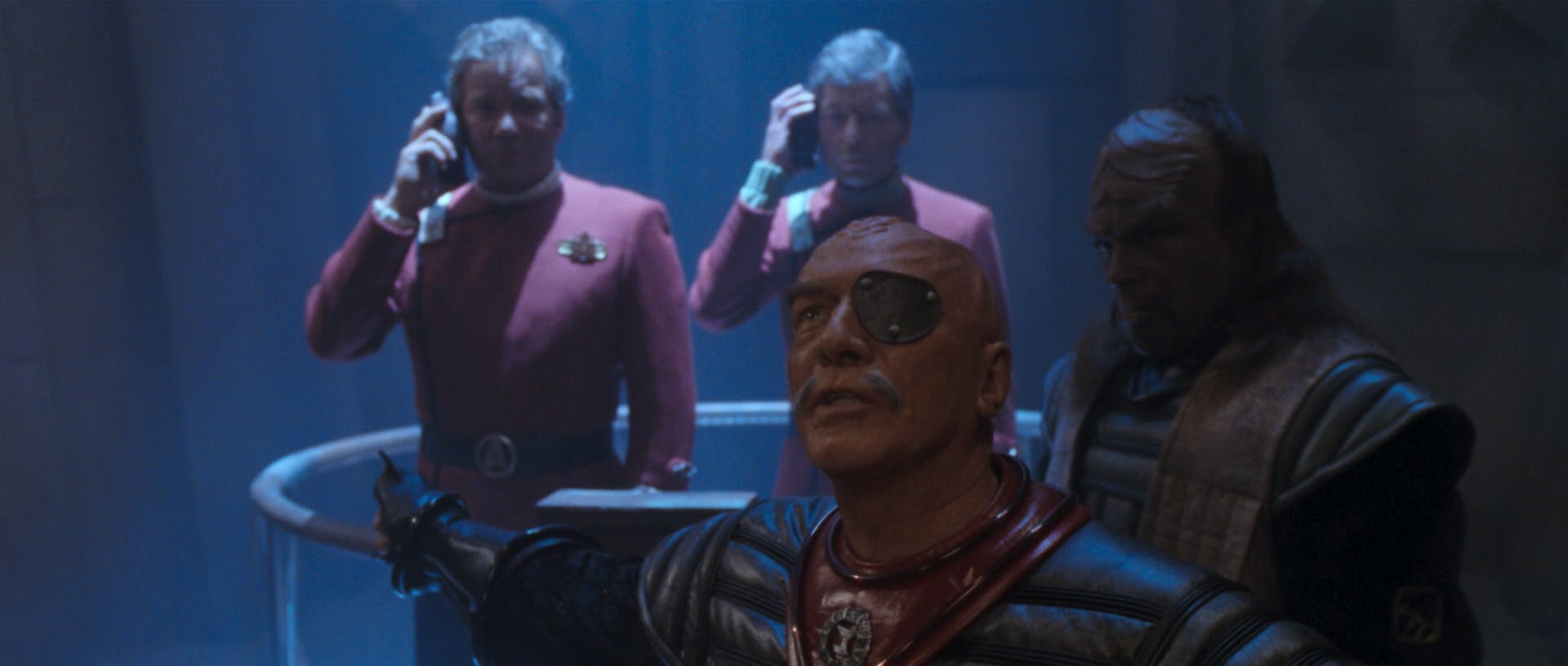
Star Trek VI: The Undiscovered Country
StarTrek.com
I do not believe in the superiority of my race over another. Like Kirk and the Enterprise crew in The Undiscovered Country, however, I have had to face uncomfortable truths about my privilege and ignorance. And, as Star Trek VI shows, confronting these truths are the first step to overcoming them and tearing down racism wherever it’s found.
I’ve heard throughout my life “no one is born a racist,” with the implication that children learn overt racism from their parents, etc. I believed that idea well into adulthood. I now disagree. I was born into a systemically racist society. I grew up in a world of privilege. This doesn’t mean I’ve had a life without challenges. But thanks to the color of my skin and my gender, I’ve had access to every type of opportunity. I didn’t have to fight for an education. I got immediate access to cancer treatments when I needed them. Finding housing and employment has never been difficult. with my almost-13-year-old-son or warn my daughters they may be shot by police in their beds.
Like Chekov, I ignorantly and arrogantly believed in “inalienable human rights” that were available to everyone as part of the “American dream.” As I’ve learned about Flint’s water, Trayvon Martin’s bag of Skittles, George Floyd calling out “I can’t breathe!,” Breonna Taylor sleeping, attempted and successful disenfranchisement in urban areas, and so many other examples that run counter to this concept, I’ve seen it fall apart. I’ve asked myself questions like, “Why was I so scared when I was on a bus in Harlem late at night that time?” and “Why do I casually use phrases like ‘lower on the totem pole’?”
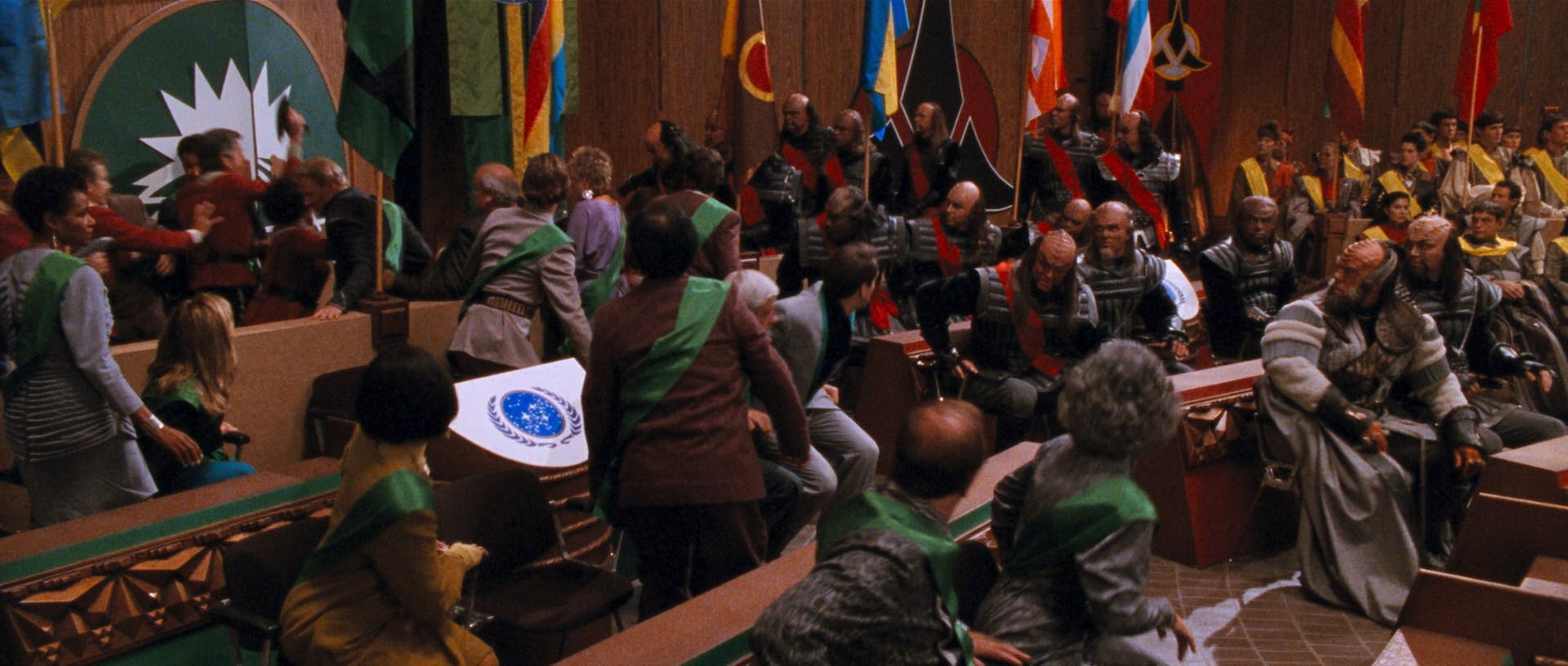
Star Trek VI: The Undiscovered Country
StarTrek.com
Forging this “Undiscovered Country” has been painful, but growth always is. In the latter half of 2020, my response to these questions and my perspective has evolved. Like millions of others, I posted a black square image on Instagram. But such performative allyship is pointless if it stops there, which, for me, for a time, it did.
By nature, I am not one to take to the streets in protest. I’m too introverted. But I’ve felt compelled to do more. I’ve never really believed in the statement “I don’t see color,” because I always have. As my understanding has developed, I’ve striven to move from simply seeing color, to embracing color, to celebrating color, to elevating color. I’ve studied more in-depth the principles of systemic racism. I’ve donated to various causes supporting BIPOC groups and communities, including through the #StarTrekUnitedGives campaign. My conversations around race with my children have grown in frequency and shifted to teaching them about their privilege and finding ways to use it for the benefit of others. Together, we are learning to recognize and root out racism in the small ways we can. Yet, I know it’s not nearly enough. We still live in a systemically racist society. My growth in this process is a continuing mission. I frequently stumble. As Gorkon states at that ill-fated dinner in Star Trek VI, “I can see we have a long way to go.”
It’s been said that Gene Roddenberry disliked Star Trek VI because of the Enterprise crew’s racism. But I have found hope in it. If the citizens of a utopian Federation can confront their racist attitudes and the systemic racism in the galaxy, I can too.

